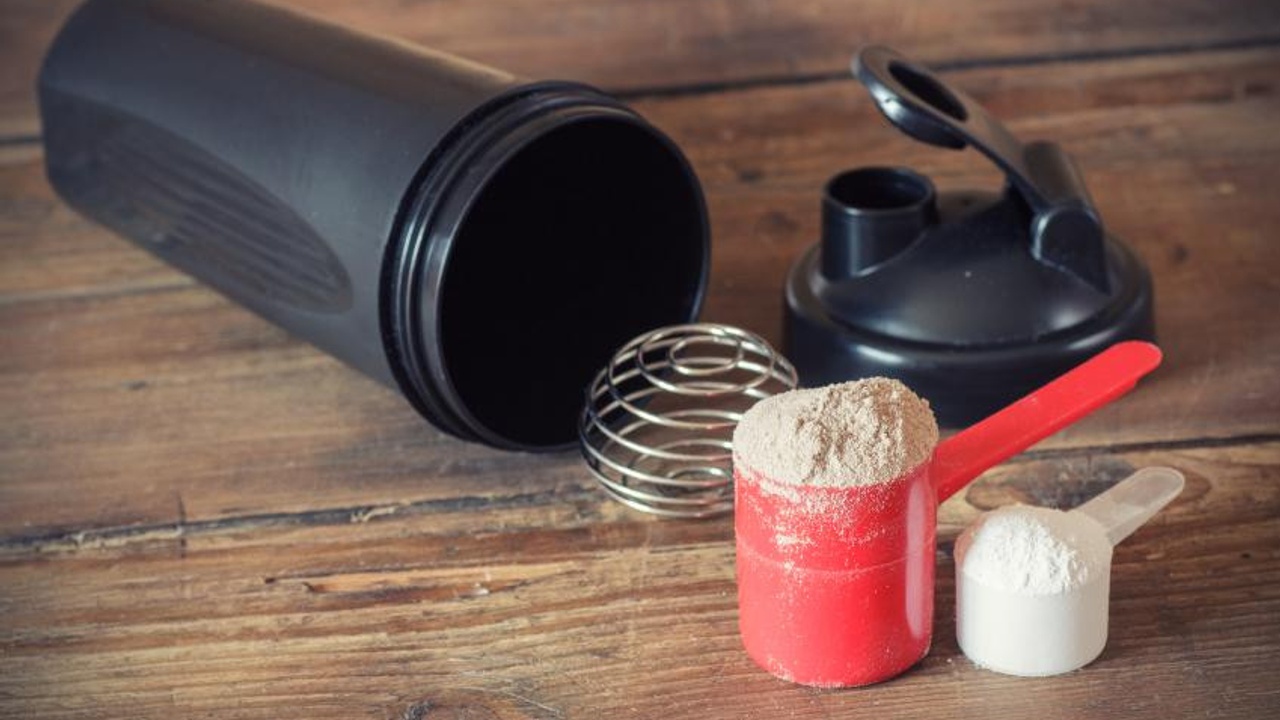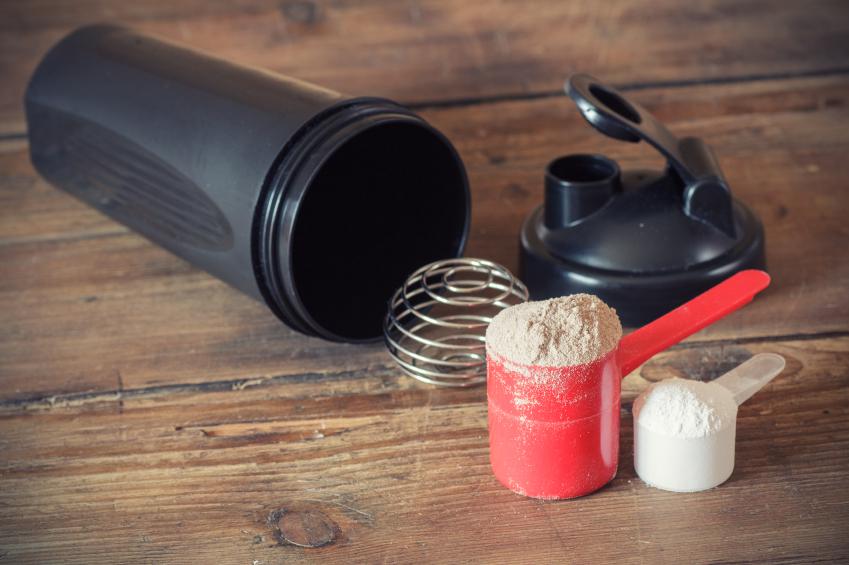
Performance Nutrition for Young Athletes: Fuel Like a Champion!
By Corey Beasley
One of the most common questions that we get here at FCC is about nutrition. What should I eat? How often? What about cutting weight? Are there any good supplements we should be using? These are all good questions, but the truth is that we have to get the basics dialed, before making things more complicated. This is no different than skill or strength work: Learn the basics first and then try new things down the road. In this week's article, Dr Mohr walks us through a few nutrition basics. While this may seem elementary for some, I'd challenge you to review your week and see how well you're really eating.
Dr. Chris Mohr has Bachelor and Master of Science degrees in Nutrition from the Pennsylvania State University and University of Massachusetts, respectively. He earned his PhD in exercise physiology from the University of Pittsburgh and is a Registered Dietitian and Board Certified Specialist in Sports Dietetics. He was a consulting Sports Nutritionist for the Cincinnati Bengals and is also an Expert Contributor to Reebok. Through his company Mohr Results, Inc., he works with all types of individuals from youth to professional athletes.
Performance Nutrition 101
By: Christopher R. Mohr, PhD, RD
Young athletes have very unique demands – school, sports, and training.
But even in the busy world of a young athlete, there is a way to improve each of those 3 things – by Fueling like a Champion.
Let’s instead delve a bit into some specific nutrition tips Young Athletes.
Carbohydrates (Good or Bad?)
 Carbohydrates should absolutely be the cornerstone of a player diet. The key, is to focus heavily on quality — “think fiber, not carbs!” There is a huge difference between white bread and whole grain, high fiber bread; a sugar coated cereal and oatmeal; French fries vs. sweet potatoes. Focus on the quality of the carbohydrates.
Carbohydrates should absolutely be the cornerstone of a player diet. The key, is to focus heavily on quality — “think fiber, not carbs!” There is a huge difference between white bread and whole grain, high fiber bread; a sugar coated cereal and oatmeal; French fries vs. sweet potatoes. Focus on the quality of the carbohydrates.
For example, definitely eat breakfast, but try a whole grain based cereal with some fresh fruit for the nutrients and fiber. Something like oatmeal instead of Fruit Loops or Cheerios vs. Cocoa Pebbles.
Sandwiches should be made with whole grain bread, rather than their white counterpart. Snacks can be whole grain crackers with peanut butter, fruit or veggie sticks with peanut butter, etc. The list can go on.
The focus of carbohydrates should always be on foods that provide a few grams of fiber per serving (exception is milk and yogurt, which are very healthy and carbohydrate based, but provide little, if any fiber).
Fruit and vegetables are also a crucial element for a high performance athlete. Kids often shy away from them and parents don’t always push them. However, research has suggested it can take as many as one dozen times to determine if a child likes a particular food. The key for a parent is to introduce kids to as many of these nutrient dense, colorful foods as possible! Make it fun.
Here are a few ideas:
- Ants on a log (celery with natural peanut butter and raisins)
- Sailboats (apple slices with toothpicks holding a cheddar cheese “sail”— of course watch your child to ensure they don’t eat the toothpick).
- Homemade trail mix (mixed nuts, dried fruit, and some whole grain cereal)
Keep in mind that dried fruit counts towards the total fruit intake for the day, as does 100% juice (of course this shouldn’t be the mainstay, though, as whole fruit provides more fiber), along with fruit puree.
Protein Needs of Athletes
In the world of athletics, no other macronutrient has received the same level of attention as protein.
Of course protein plays a role and a very important one at that! One important message is to make sure you always focus on food first – not protein supplements. High quality protein sources include:
- fish and other seafood
- low or non fat milk or yogurt
- chicken and turkey breast
- lean red meat
- mixed nuts
- eggs
- beans
- natural peanut butter
Should young athletes take a protein supplement?

The better question is:
- Do they need a protein supplement? No.
- Will it make them into the next college or pro athlete? Of course not!
- Can it be beneficial and a healthier option than many of the alternative high sugar, high fat foods marketed directly towards children? Absolutely!
But food first as whole foods provide more nutrients than any supplement does or ever will be able to provide.
Chewing the Fat
Fat is another crucial nutrient for athletes. The key, like with the other macronutrients, is to focus on quality. In fact, there have been a handful of scientific studies to even show that one component of omega-3 fats, DHA, is crucial in terms of brain development. Fat also provides a lot of calories (over double that of protein or carbohydrates), which can be important for very active, young athletes who need more calories than most to develop healthy, strong bodies.
Here are a few fats to choose:
- Fish
- Whole eggs
- Olive oil
- Raw mixed nuts
- Natural peanut butter
- Avocados and more
Don’t overdo the fats, but definitely don’t skimp on them either—moderation and quality is king!
There you have it. Nutrition basics.
Feed your body. It’s a machine. To be the best, you need to train and eat like the best athlete in the world.
——————————
 Dr. Chris Mohr is an expert nutrition consultant for Reebok and was the sports nutritionist consultant for the Cincinnati Bengals, along with being on the board for Men’s Fitness Magazine. He is the creator of Complete Sports Nutrition. If you are looking for a nutrition system for your athletes, then go checkout the details on the Complete Sports Nutrition here
Dr. Chris Mohr is an expert nutrition consultant for Reebok and was the sports nutritionist consultant for the Cincinnati Bengals, along with being on the board for Men’s Fitness Magazine. He is the creator of Complete Sports Nutrition. If you are looking for a nutrition system for your athletes, then go checkout the details on the Complete Sports Nutrition here
Weekly Tips for Physical Dominance!
Blog Categories
All Categories #athleticism #athleticmastery #athleticperformance #athletictraining #boxingtraining #dancebenefits #danceinsports #fighterconditioning #gymnasticsdrills #mma #sportstraining #tailoredtraining #warmup accommodating resistance aches and pains action active recovery active recovery techniques adaptability adapting techniques adapting to competition aerobic exercise benefits aesthetics affordable eating for athletes affordable gym essentials age-defying workouts ageless fitness agility agility drills agility training agility workouts aging athletes workout aging combat athletes aging gracefully aging grapplers aging in martial arts alcohol alcohol and sports alcohol reduction alcohol's impact on fitness altitude chamber ancient warriors anxiety assessment athlete athlete development athlete lifestyle athlete mental health athlete mindset athlete nutrition athlete performance athlete productivity athlete recovery athlete recovery methods athlete rest athlete training athlete well-being athlete wellness athlete's guide athlete's health athlete's journey athlete's shoulder athlete's well-being athletes athletic conditioning athletic development athletic genetics athletic health athletic meal planning athletic mindset athletic performance athletic performance science athletic potential athletic preparedness athletic progress athletic prowess athletic recovery athletic recovery techniques athletic rotation athletic success athletic testing athletic training athletic upbringing athleticism athletics athltic performance back pain relief balance balance and stability balanced diet balancing act bar speed technology battling ropes behavioral change benefits of sauna after exercise benefits of supplements best fitness presents beta-alanine big fight big toe bilateral exercises biological necessity biomechanics bjj bjj conditioning bjj grip training bjj kettlebell bjj strength and conditioning bjj strength exercises bjj strength training bjj strength training workout bjj training bjj training tips bjj workout bjj workouts blue zone diets blue-collar strength body preparation bodybuilding bodyweight bodyweight exercises bottled water bottom-up exercises boxers boxing boxing conditioning boxing conditioning workouts boxing fitness boxing footwork boxing for beginners boxing history boxing legends boxing mistakes boxing myths boxing power boxing science boxing skills boxing sparring boxing strength training boxing technique boxing techniques boxing tips boxing training boxing workouts bracing techniques brain health brazilian jiu jitsu brazilian jiu-jitsu breath breathing breathing techniques budget-friendly nutrition budget-friendly workout gear building muscle after 40 burnout prevention business ideas caffeine cage combat calisthenics carbohydrate repletion carbohydrate restriction carbohydrates cardio cardio and conditioning cardiovascular endurance career transitions challenges challenges in jiu jitsu champion's journey champion's mindset charity child fitness christmas fitness gifts circuit training for mma clarity clean and jerk climbing rope climbing techniques coach coordination coaching cold plunge benefits cold therapy cold therapy in sports college wrestling collegiate wrestling combat athletes combat sports combat sports athletes combat sports conditioning combat sports mastery combat sports training combat training combined training strategies communication community competition competition preparation competitive boxing competitive edge competitive training for seniors concurrent training concurrent training for fighters concussion concussion side effects concussions conditioning conditioning for bjj conditioning for mma conditioning workouts conjugate training consistency continuous improvement contrast therapy in sports convenience drawbacks coordination coping mechanisms coping strategies coping with defeat core core exercises for boxers core stability core strength core training crawling crawling exercises crawling patterns creatine cross-training cross-training for fighters cryotherapy and athletic performance culture curcumin cutting weight cutting weight for bjj cvac cvac machines daily improvement daily routines debunked myths dedication dehydration determination detrimental habits diet diet and fitness diet for bjj dietary supplements digital age digital distraction discipline distractions diverse play dominance doping drawbacks of supplements drills durability dynamic stretches dynamic stretching dynamic work dynamic workouts eating habits electrolyte replenishment elevate performance elite performance elite wrestlers emotional balance emotional challenges emotional intelligence emotional resilience emotional stress endurance endurance activities endurance training energy drinks energy systems in sports enhancing grappling performance equipment exercise exercise consistency exercise equipment under $500 exercise for aging athletes exercise guide exercise intensity exercise optimization exercise order exercise physiologist exercise physiology exercise programming exercise science exercise science for seniors exercise science in martial arts exercise science insights exercise variables exercises exercises for jiu jitsu explosive advantage explosive power explosive strength extraordinary strength eye training fame fame and media fasting for athletes fatigue fatigue management feamle athletes feet female fighters training female martial artists fight nights to remember fight preparation fight training workout fight week fight week nutrition fight weight fighter assessments fighter conditioning fighter diet fighter diet plan fighter performance fighter safety fighter tips fighter training fighter workout plan fighter's fitness fighter's guide fighter's mind fighters fighting fighting training finances fitness fitness buff fitness enthusiast fitness equipment for small spaces fitness for fighters fitness for wrestlers fitness goals fitness habits fitness history fitness journey fitness mindset fitness motivation fitness myths fitness regimen fitness strategies fitness tips fitness tips for boxers fitness training flexibility flow state fluidity of motion flywheel resistance flywheel resistance training flywheel training focus focus strategies food and nutrition food industry in the united states foot foot and ankles foot arches foot exercises foot strength footwork drills force-velocity curve foundational movement foundationofstrength french contrast training fueling strategy full-body strength fun workout games functional fitness functional range conditioning functional strength gains genetic predisposition genetics genetics in sports gift ideas for fitness enthusiasts giving back global perspective global wrestling glute activation goal achievement goal setting grappler endurance grappler flexibility grappler training grapplers grappling grappling myths grappling strength grappling techniques grip grip exercises grip improvement grip strength grip strength exercises growth mindset guard mobility gym diet gym discipline gym efficiency gym habits gym training gym workouts gymnastics progressions habit formation habits hand exercises hand health hand protection hand strength hand strength assessment hand strength exercises head injuries healing health discipline health preservation health technology healthcare professionals healthy eating healthy habits healthy holidays healthy lifestyle healthy living healthyeating heart rate heart rate monitors heart rate zones heat acclimation with sauna heat therapy for muscle recovery heavy bag workouts help others high altitude chambers high mileage high school sports high-intensity training historical feats history history of supplements holiday eating holiday fitness shopping list holiday fitness tips holiday health holiday indulgences holiday nutrition holiday season holiday stress holiday wellness holidays holistic development holistic fitness holistic nutrition home gym equipment home post how to prepare for a fight human strength hydration hydration benefits hydration strategies hydrogen water ice bath benefits ice bath recovery time ice bath temperature for athletes ice baths ice baths and immune system ice baths for athletes iconic fights impact of supplements improve technique increase strength incredible strength individualized workouts inflammation information overload injury injury management injury prevention injury prevention for grapplers injury risk inmate strength inner critic intensity intentional training intermittent fasting international wrestler interval workouts jiu jitsu jiu jitsu exercises jiu jitsu workout jiu-jitsu jiu-jitsu for kids jiu-jitsu recovery jiu-jitsu strength training jiu-jitsu techniques jiu-jitsu training joint flexibility joint health joint mobility jumping kettlebell kettlebell exercises kettlebell workouts kickboxing kickboxing legends kids fitness kinetic chain knee health knee injuries knockout power knockout punch labor-intensive work lat pull-down lean muscle learning styles leg strength leg strength for boxers legendary fighters legends lifelong success lifestyle changes lifestyle for athletes lifestyle habits lift speed lightning-fast kicks loaded carries long-term athletic development long-term benefits losing weight lower body training macronutrient balance magnesium making weight martial arts martial arts conditioning martial arts fitness martial arts strength training martial arts training martial arts wellness master class boxing masters athletes masters bjj masters division fitness masters jiu jitsu masters-aged grapplers meal planning medicine ball mental mental conditioning mental fortitude mental health mental health in sports mental preparation mental resilience mental resilience in sports mental skills training mental strategies mental strength mental stress mental toughness mental training mental training for athletes mental well-being mind game in sports mind-body connection mind-body wellness mind-muscle connection mindful exercise mindfulness mindfulness in sports mindset mindset training mineral water mixed martial arts mixed martial arts training tips mma mma cardio mma cardio workout mma conditioning drills mma conditioning routine mma epic battles mma exercises mma meal plan mma nutrition mma performance mma recovery mma recovery techniques mma strength and conditioning mma strength training mma training mma weight training mma workout routine mobility mobility and flexibility modern athletes modern boxers momentum monastic wisdom motivation motivation techniques movement patterns muay thai classics muay thai conditioning multi-plane exercises muscle building muscle building foods muscle development muscle growth muscle imbalance muscle maintenance muscle mass muscle recovery muscle soreness muscle soreness and ice baths muscle strengthening natural athletes nature's healing ncaa neck health neck strength neck strength and concussion prevention negative effects of weight cutting new goals news nitrate nootropics nutrient-dense foods nutrient-rich foods nutrition nutrition for athletes nutrition for boxers nutrition for fighters nutrition for young athletes nutrition tips olympic weightlifting omega-3 omega-3 fatty acids optimal boxing performance optimal performance optimal recovery times outdoor outdoor recovery overall health overcoming challenges overcoming excuses overcoming fear overcoming limitations overcoming obstacles overtraining parasympathetic dominance passion peak athletic performance peak performance peaking peaking strategies peds peptides performance performance enhancement performance evaluation performance impairment performance metrics performance nutrition performance optimization performance testing performance-enhancing drugs periodization perseverance personal development ph water philanthropy physical activities physical activity physical challenges physical conditioning physical demands physical development physical fitness physical health physical matchups physical preparation physical stress physical therapy physical training plyometric exercises plyometrics positive self-talk positive teammates post-training recuperation post-workout post-workout ice bath post-workout recovery posture power power building power generation power lifting powerlifting pre-competition routine pre-competition strategies pre-supplementation preparation pressure prison workouts probiotics professional fighting progressive overload proper nutrition protein protein for fighters protein intake psychology pull downs pull ups pull-ups punch power punching accuracy punching power punching technique punching techniques quality sleep quality vs quantity range of motion reaction time reaction times recognition recovery recovery habits recovery methods recovery nutrition recovery science recovery strategies recovery techniques recreational athlete recreational athletes recreational boxing rehydration rejuvenation relaxation techniques repetitions resilience resistance to change resistance training rest rest and recovery rest and rejuvenation rest day rest days rib cage rice method rock climbing rope climbing rotational exercises running sacrifice safe weight loss safety sauna sauna and cardiovascular health sauna and ice baths sauna and stress reduction sauna benefits for recovery sauna for endurance athletes sauna therapy for athletes sauna use for muscle recovery saunas schedule scientific strategies screen time sedentary lifestyle sedentary lifestyles self-care habits self-compassion self-control self-defense self-discipline self-sabotaging habits senior athlete training senior fitness shadow boxing shoulder blade movement shoulder exercises shoulder health shoulder strength shoulders signs of overtraining sleep sleep duration sleep for recovery sleep optimization sleep quality snatch social challenges social media sparring tips speed speed and agility speed and power speed and power training speed training speed training techniques speed vs strength sports sports coaching sports injuries sports medicine sports nutrition sports odyssey sports performance sports psychology sports science sports supplements sports vision training sprinting stability stamina stamina improvement staying focused steam room steroids strategic meal planning strategic workouts strengh strength strength & conditioning strength & conditioning for combat athletes strength and conditioning strength and endurance strength and power strength and technique balance strength building diet strength building drills strength coaching strength conditioning strength exercises strength exercises for mma fighters strength feats strength for mma strength maintenance strength retention strength training strength training for boxers strength training for jiu-jitsu strength training myths strength training over 40 strength training principles strength training psychology strength work strength workouts for grapplers strengthcoach strengthening exercises stress stress management stress relief stretches for bjj stretching stretching exercises striking strong cultures success sugar supplement guide for mma supplement industry supplements supplements for athletes supplements for brain health support system surfing takedowns targeting team dynamics technique technology technology impact time management time wasting habits top-rated exercise gear toughness tournament readiness track workouts for fighters" tags: combat sports training training balance training blocks training camp training challenges training consistency training coordination training distractions training efficiency training innovation training intensity training methods training optimization training plan training plans training principles training recovery training regimen training routines training schedule training strategies training stress training techniques training tips training to failure training volume training volume and intensity triumph through adversity twice-a-day workouts ultimate athlete development unconventional training under recovery unilateral exercises unilateral training untapped potential us presidents usada vertical pull exercises veteran boxers visualization techniques visualizing success vitamin d volunteer wada warm up warm ups warm-up and cooldown warm-up exercises warm-up techniques warrior mentality water intake water types weigh in weigh-ins weight class weight classes weight cut weight cutting weight cutting methods weight cutting safety weight gain weight lifting weight loss weight loss strategies weight management weight-cutting guidelines weightlifting


